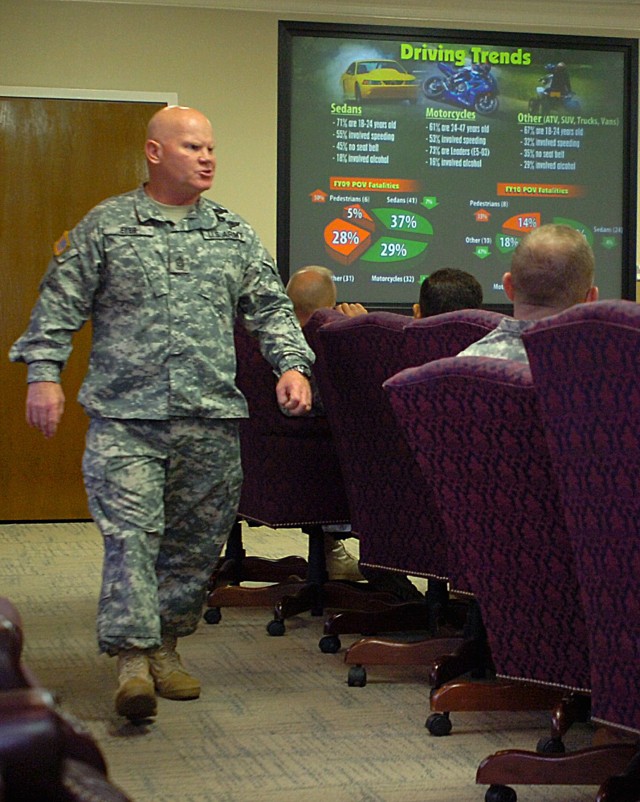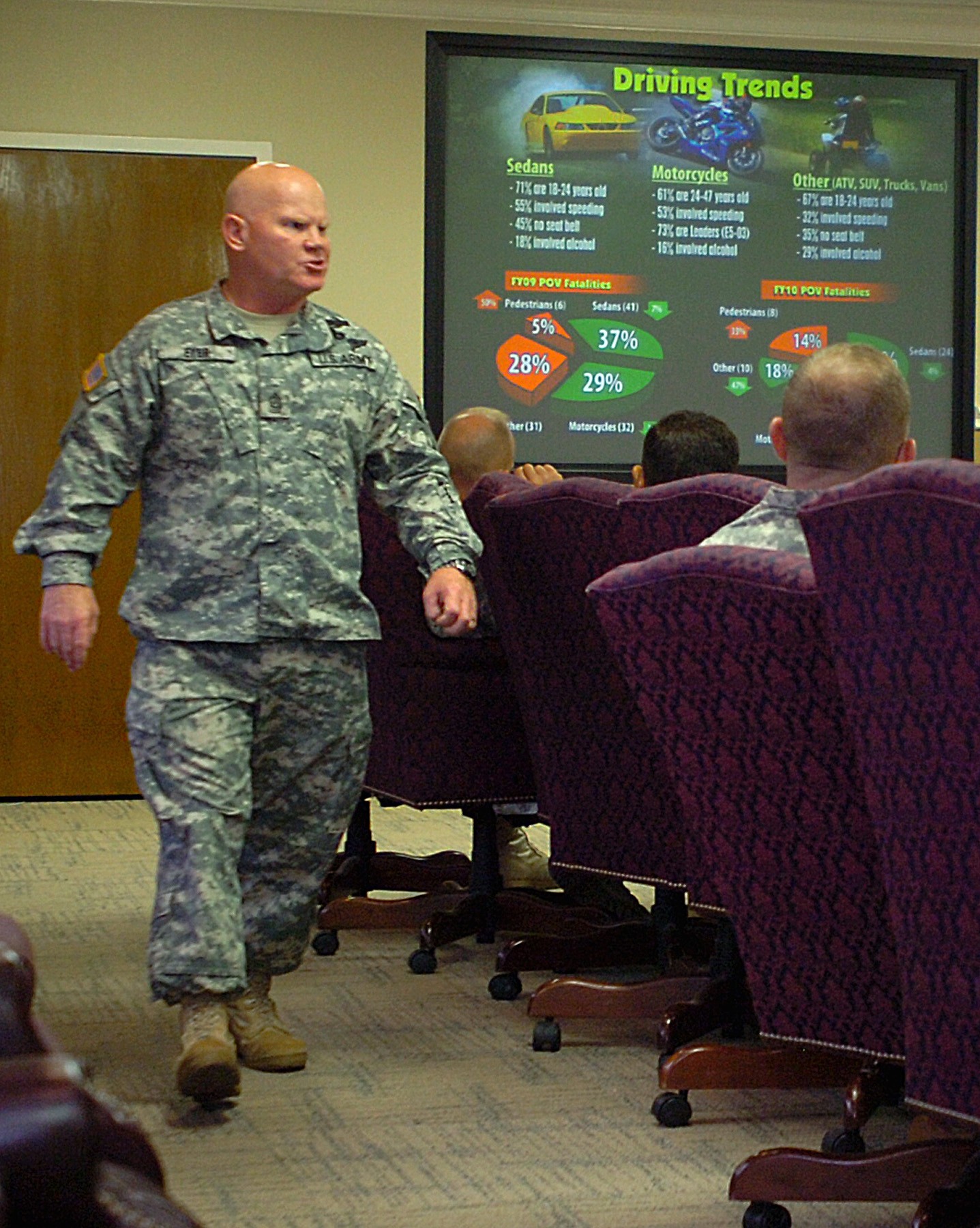
FORT HOOD, Texas - Since February, seven Soldiers from the 1st Cavalry Division have been killed in accidents.
"At one point a Soldier was killed every other night for a week," said Command Sgt. Maj. Rory Malloy, top enlisted member of the 1st Cav. Div. "We've had a rough run these past couple of weeks and that's one standard we do not want to lead the way on."
Senior noncommissioned officers from the 1st Cav. Div. met with Command Sgt. Maj. Michael Eyer, of the U.S. Army Combat Readiness/Safety Center from Ft. Rucker, Ala., at the division's headquarters, May 14, to discuss ways to improve the division's safety programs and keep Soldiers out of harm's way.
Throughout the meeting, emphasis was placed heavily upon "engaged or intrusive leadership." This establishes a more involved relationship with those who are placed in a leader's charge. It also enables leaders to have more of an influence on their Soldiers' attitudes and ultimately motivate them to make safety a habit.
"The message is not getting out to our junior leaders and Soldiers when it comes to the end of the work day or planning their weekend," said Eyers. "Every 58 hours we are losing a Soldier to an accident within the Army."
Eyer's insisted on all leaders talking to Soldiers about Soldiers.
"This is a very powerful way to start identifying things going on within your organization," he said. "You won't hear from a Soldier 'I messed up' but you will hear it from a buddy, a squad leader and so-forth."
He also talked on the importance of using Family members as a tool to help the Soldier think more safely.
"By making the Family apart of [safety programs] they can not only help themselves but they help their Soldiers," Eyer said.
Eyer said the Army had 94 accidental fatalities during fiscal year 2010 showed, as of May 14.
Throughout the meeting, short video clips were played to assert the meaning of each safety message. These clips ranged from seat belt safety to the impact it has on your Family if you are killed by your own carelessness.
After the briefing, Malloy stressed the importance of refreshing and adding to safety programs within the division to the other senior NCOs.
"The [commanding general] and I are looking for anyone and everyone who has an idea to help change behaviors and stop these radical types of behaviors," he said.
At the end of the briefing, Malloy said that it would not be the sergeants major that brought a solution to this problem but the sergeants and the privates.
"Focus on the positives, reinforce the good and show them what right looks like."
For more information on the U.S. Army, Fort Hood and the 1st Cavalry Division's safety programs go to https://safety.army.mil.

Social Sharing